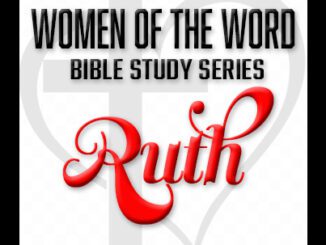Scripture References
1 Kings 17:8-24; Luke 4:25-26
Name Meaning
We do not know her name, thus have no meaning
Family
Mother to a son, also unnamed
Introduction
The story of the widow of Zarephath is one of faith. We are introduced to an unnamed woman who demonstrates great faith in acting obediently. Most people in her position would not have responded as hospitably as this woman did. But there is much we can learn from the actions of this woman who was preparing to give up and die. We see God’s provision in times of need and how it can change our lives.
Lesson
There is little we know of the woman from Zarephath other than the fact that she was a widow and had a son. They apparently had no other family, otherwise they’d have help in the hard times they were facing. But though her name is not known to us, her obedient response is recorded for posterity in the books of 1 Kings and Luke.
Zarephath was also known as Sarepta and was in Zidon, which was not a part of Israel. It was in pagan lands. It happened to be the native home of Jezebel, who wanted the prophet Elijah killed. Zarephath was halfway between Tyre and Sidon. During times of plenty, her home’s land was able to produce enough to sustain her and her son. But it was during an extreme drought and famine that Elijah arrived at her home.
Elijah, being hunted by Jezebel, first encounters this woman when she was gathering sticks to build a fire upon which she planned to cook her final meal. Elijah asked her for a drink and a bite to eat. She humbly explained that she had just enough to make one final meal for her and her son and then they would die. There was nothing more she could do but curl up and die the slow, agonizing death of starvation. She was a pagan, in pagan lands, but responded, “As surely as the Lord your God lives…”
Elijah instructed her to make this final meal, explaining that the jar of flour would not be used up and the jug of oil would not run dry. Though she did not know him or that he was a great prophet, she obeyed. Her response is amazing. She did not know his God but she did as she was told. She trusted the words of Elijah and returned home to prepare the meal.
The widow didn’t say no. She didn’t refuse to share with this stranger at her door. She didn’t show bitterness or anger at his request. She simply complied. She chose to be hospitable and to share their final, meager bites of food. And she served him first.
And just as Elijah said, the jars were never empty. He stayed with her and her son for two years, and she was able to provide sustenance for all three of them.
The Bible does not speak of her faith, but after having witnessed the miracle of multiplication in her own home she had to have wanted to know more. Both the widow and her son probably learned much from this man of God who resided with them for years.
During Elijah’s stay, the boy became sick and died. The widow was faced with despair once more. In her grief she turns to Elijah and asks, “Did you come to remind me of my sin and kill my son?” She had obviously learned much from him during his time with her family because she mentioned her own sin as being part of the blame for her son’s death.
Elijah took the boy to his room and cried out to God and the boy lived. He gave the child back to his mother and she exclaimed, ”Now I know that you are a man of God and that the word of the Lord from your mouth is the truth.” Her sorrow of losing her son was replaced with praise.
Note the different uses of words between her first encounter with Elijah and that of the raising of her son. In her first encounter she referred to “the Lord your God.” YOUR God. But after her son was given back to her she says, …”the word of the Lord.” The word of THE God, not your God. Though it doesn’t say it, we can assume she had become a believer during their years in the same home.
Nothing further is known of this woman or her son. Elijah is eventually called away, instructed by the Lord to return to Ahab and inform him the drought would end.
The only other reference of this woman can be found in Luke 4:26, when Jesus mentions her.
What can we learn from this woman? We see a woman who, in her despair and poverty, was ready to give up and die. Yet God stepped in and provided when she trusted the words of a stranger and stepped out in faith to share all she had. God not only provided, but continued to provide for her. And her life was transformed.
Our own lives can be changed, too. In our own times of need, we should have faith that He will meet all of our needs. We simply need to trust, to believe that He will make a way. He loves us and wants to bless our lives. Are you willing to give your all for Him?








Be the first to comment